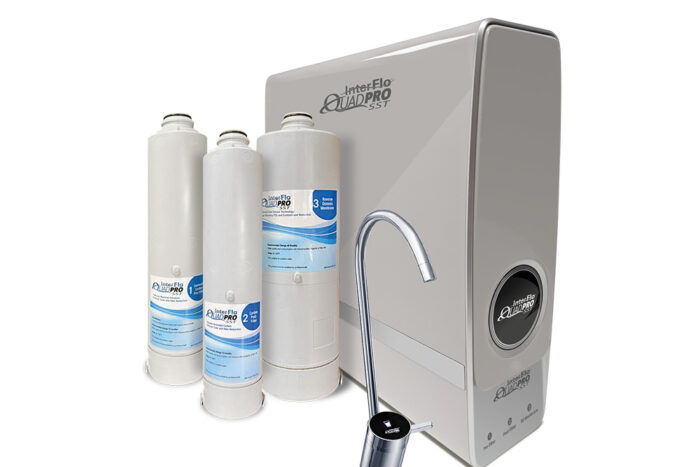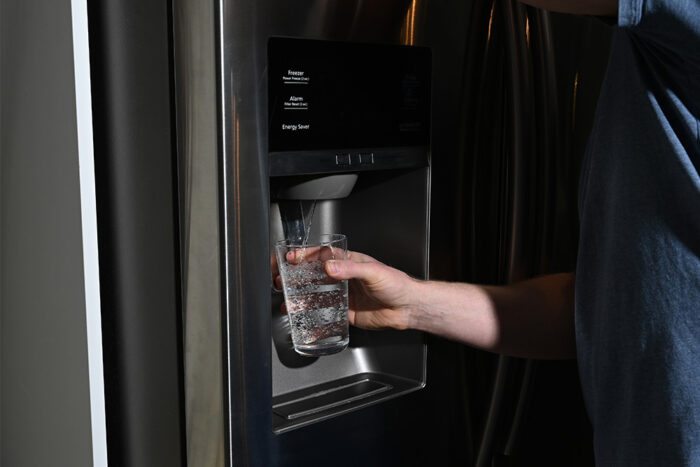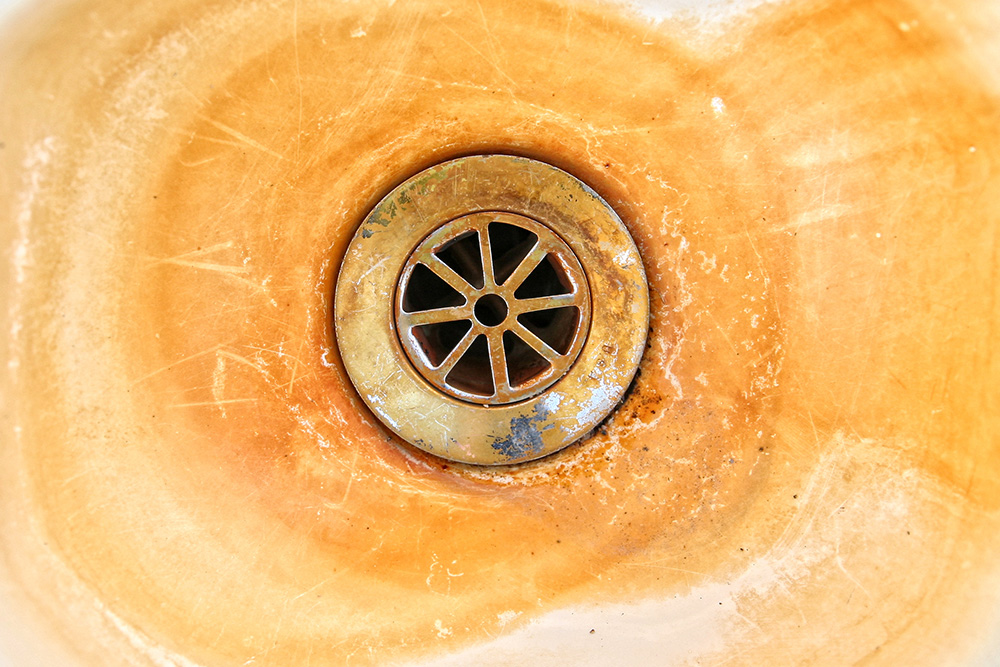High iron water is a frustrating problem for homeowners with wells. From the ugly stains and discolored tap water to nasty iron bacteria in the toilet tank, iron is one of the most common complaints our water treatment experts around the country are asked to fix.
Many of these homes already have a water softener. So, why do they still have issues with iron?
Despite what you might think, a one-size-fits-all solution for residential water treatment is unrealistic. Every home’s water is unique, especially when it concerns well water. The water quality in your private well may be quite different from your neighbor’s down the road.
Let’s take a closer look at effective ways of removing iron from water and why your basic water softener isn’t doing the trick.
Why Your Water Softener isn’t Solving Your Iron Problem
It only takes a miniscule amount of iron in water to cause staining, as little as 0.3 parts per million (ppm). To put that into perspective, 1 ppm is equivalent to a milligram of iron (about one grain of sand) dissolved in a liter of water.
Water softeners can and do remove small amounts of iron. Yet, a standard softener is not specifically designed to treat high levels of iron in your water.
For example, the water softener systems Water-Right manufacturers remove iron in concentrations up to 1 ppm, or 1 mg/L. However, due to geological makeup and groundwater quality, many regions of the United States have significantly higher iron content than that.
It’s not uncommon to see water with 10 ppm of iron in Wisconsin. In Idaho 15 ppm is quite typical, and Water-Right regional sales manager Jeff O’Callaghan says many states in the central U.S. deal with high iron.
“Heavy iron in the Missouri Valley area is very common, particularly in Nebraska, eastern Kansas, and eastern Oklahoma,” he says. “There’s just a lot of natural iron in the soil along the region that percolates into the aquafer or the water tables.”
A typical water softener contains resin beads that are designed to remove the hardness minerals calcium and magnesium through a process known as ion exchange. Water softener salts rinse over the resin to knock off the calcium and magnesium ions and flush them from the softener. But, excess iron often remains in the water traveling to your home for use. (Find out more about how a water softener works.)
Read more information about the different types of iron in your home’s water.
Water Treatment Solutions for High Iron Water
If heavy iron is causing problems in your home, you may need to consider updating or supplementing your water treatment equipment.
Removing iron from water requires an understanding of the chemistry behind it.
There are two main types of iron in water. First, there’s ferric iron, which is insoluble and visible to the naked eye. It’s commonly called “red water iron.” Then, there’s ferrous or soluble iron, which is dissolved in the water and invisible. We call this “clear water iron.”
Because water with ferric iron contains particulates, the iron can be filtered out with the right media. Dissolved iron is a bit trickier. It requires oxidations in order to change it from its dissolved state to particulate iron so it can be removed.
The most effective solution if you already own a softener is adding an iron filter. You can have a professional install an iron filtration system such as Water-Right’s Impression® Plus Air Series (pictured here). This includes a unique air chamber that the water passes through first to cause the oxidation of dissolved iron, then the newly formed particles get trapped by the media inside.
In addition to systems designed to oxidize and filter out iron, Water-Right also has exclusive access to a special water treatment media that is very good at removing iron. Crystal-Right is a unique synthetic zeolite that is ideal for treating many types of problem well water. If you do not currently have a softener installed or a looking to upgrade, a system equipped with Crystal-Right is an excellent solution. It is effective at reducing iron, manganese, and hardness in a single unit. Some models can even neutralize acidic water at the same time as well.
Dealing with Iron Bacteria
If you’ve ever lifted the top of the tank on the back of your toilet and noticed a bunch of slimy gunk floating around, you’ve witnessed iron bacteria. These bacteria feed off the iron in your water, and while it may not be a major health concern, it can cause several other issues.
Bacterial iron contributes to staining, negatively affects the taste and odor of your water, and it can clog up well pumps, dishwashers, and your water softener, too.
Shocking your well with chlorine is one way to address bacterial iron that as formed in your home. Water-Right’s patented chlorine generator can also be used to help prevent and bacteria growth inside your home’s water softener or system equipped with Crystal-Right media. For an air-injected iron filter, Water-Right also offers an ozone generator, which is a chemical-free solution to keeping your tank clean.
Fix the Iron Issues in Your Home’s Water
While there are some temporary solutions for iron stains, there’s only one way to permanently fix the issues associated with high iron water: professional water treatment.
If you’d prefer to stop scrubbing stains out of sinks and toilets, hate the rusty marks on your laundry, and are sick and tired of unpleasing well water, our experts can test and evaluate the situation in your home and recommend the right solution.
A water softener is certainly an important piece in making the water right for your family, but it may not be the only equipment you need. Find out what will work for you …
Find the right contractor for you.
Recent Homeowner Resources

Are You Drinking Contaminated Water? New Rules Help Homeowners Identify Lead Risks

Introducing InterFlo® QuadPro SST!




